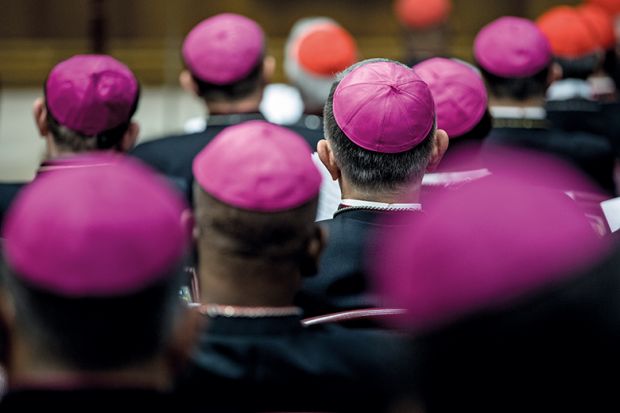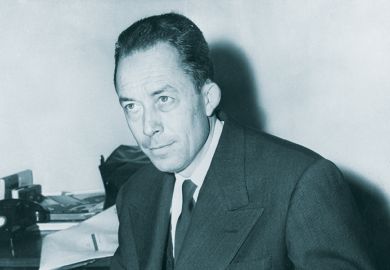John O’Malley tells us that this short monograph on ecumenical councils (those great Catholic talking shops of bishops in the presence of the Pope) is “unique…nor does any book like it exist in any language…” It is certainly unusual in that there are no citations, footnotes, endnotes, bibliography or index, since the reader, he tells us, can find stuff like that in his three previous books covering each of the separate councils in more detail. And yet it is an intriguing book in what it teasingly fails to tell us about the current crisis in the Catholic Church, and how another council might help or perhaps hinder.
We find the origins of church councils in the Acts of the Apostles, where Luke describes the gathering of elders and apostles to decide on rules for converting Gentiles. Councils would be held at regular intervals through the first millennium of Christianity. They included representatives of both the Latin West (Rome) and the Orthodox East (Constantinople) until the leading prelates of the two wings excommunicated each other as a result of the Great Schism of 1054.
O’Malley focuses on the three Latin councils – Trent (1545-63), Vatican I (1869-70) and Vatican II (1962-5) – and considers them, he writes, “synchronically” rather than “diachronically”; meaning, in effect, that he contrasts and compares them over time, rather than seeing each one in isolation. So what changes and what remains the same? As the title suggests, the bishops are always crucial, including the Bishop of Rome (who more or less interferes infallibly). The elements that contract and expand are the constituencies of cardinals, the laity and the advisory bodies of theologians. Hence by Vatican II the laity were completely out – if one disregards the impact of the thousands of journalists telexing copy across the globe. The cardinals of the Curia (the Roman bureaucracy) ruled the roost at the outset, but the bishops kicked up and became decisive over time. As for theologians, they were brought along by their local bishops. There were some famous names, still in their youth: the German bishops had Hans Kung, Karl Rahner and Josef Ratzinger; the French had Henri de Lubac and Yves Congar. Although they were officially outside the chamber, their influence was, as O’Malley tells us, crucial. At times, they seemed to be the only ones who knew what was going on. The final conciliar document, on religious freedom, was drafted by an American Jesuit theologian, John Courtney Murray.
Recent figures show that 35 per cent of American cradle Catholics no longer claim to be Catholic, while in the UK the number is higher still: 37 per cent. Was this because of Vatican II or despite it? O’Malley, alas, doesn’t go there. Nor does he address the remarkable current initiative of Pope Francis who has brought back the ancient power of local synods (the original word for councils in the West), in an effort to exert influence from the Church’s periphery rather than its centre. An extraordinary synod is due in October centred on the plight of the Church of the Amazon; the idea of ordaining married men is on the agenda to address the shortage of priests. I should have liked to read O’Malley’s opinion on such a shift, but he leaves us with speculation that, in view of the facts that the number of the world’s bishops has doubled since the 1960s, and that digital technology reigns in the Church as everywhere, a future great council may be difficult to contain.
John Cornwell is the director of the Science and Human Dimension Project at Jesus College, Cambridge, and the author of Hitler’s Pope: The Secret History of Pius XII (1999) and The Pope in Winter: The Dark Face of John Paul II’s Papacy (2004), among many other books.
When Bishops Meet
By John W. O’Malley
Belknap Press of Harvard University Press
240pp, £19.95
ISBN 9780674988415
Published 30 August 2019
Register to continue
Why register?
- Registration is free and only takes a moment
- Once registered, you can read 3 articles a month
- Sign up for our newsletter
Subscribe
Or subscribe for unlimited access to:
- Unlimited access to news, views, insights & reviews
- Digital editions
- Digital access to THE’s university and college rankings analysis
Already registered or a current subscriber? Login








